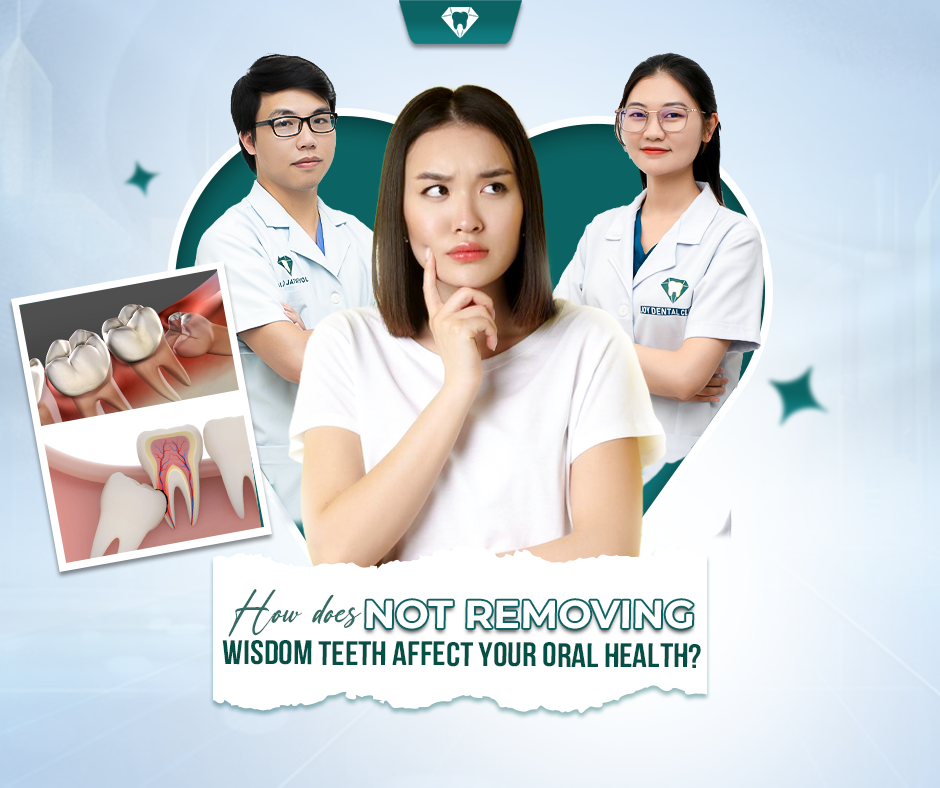Wisdom teeth are often notorious for causing pain and discomfort. Beyond the immediate soreness, they can lead to a range of complications, potentially affecting your oral health and overall quality of life. This raises an important question: If your wisdom teeth don’t hurt, do you still need to have them removed? Today, Joy International Dental Clinic will walk you through everything you need to know about this often-misunderstood dental issue.
1. What Are Wisdom Teeth and What Is Their Function?
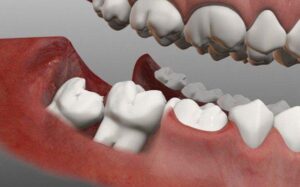
Wisdom teeth, medically referred to as third molars or the “eighth” teeth, are the last set of molars to emerge, typically appearing between the ages of 17 and 25. Because they erupt after all other permanent teeth have settled into place, there is often insufficient space in the jaw to accommodate them. This makes wisdom teeth highly prone to improper growth, such as becoming impacted, growing at odd angles, or remaining trapped beneath the gumline.
Unlike other molars that play a crucial role in chewing, wisdom teeth contribute little to no benefit in terms of function. On the contrary, they are more likely to cause inconvenience and even long-term dental issues if they grow abnormally.
You may wonder: If my wisdom teeth aren’t painful, should I still consider extraction? The answer is yes—possibly. Even without noticeable pain, wisdom teeth can silently damage nearby teeth, gums, and bone if left untreated. It’s advisable to consult a qualified dental professional for personalized guidance based on your specific situation.
2. What Happens If You Don’t Remove Wisdom Teeth?
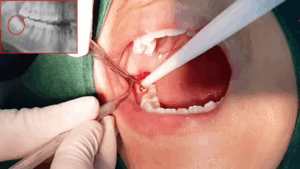
Not all wisdom teeth need to be removed. In some cases, if they are fully erupted, aligned correctly, and healthy, they can stay in place without causing harm. However, if a wisdom tooth is impacted, misaligned, or partially erupted, it can pose serious risks. These include:
-
Tooth decay: Wisdom teeth are located at the very back of the mouth, making them hard to clean. This creates an ideal environment for food debris and bacteria to accumulate, increasing the risk of cavities.
-
Gum disease: Misaligned wisdom teeth may irritate the gums and lead to localized infections such as pericoronitis.
-
Crowding: Impacted wisdom teeth can exert pressure on adjacent teeth, potentially causing them to shift and leading to misaligned bites.
Over time, these problems not only cause discomfort but can also result in the loss of surrounding teeth or the need for more complex dental treatments.
3. Complications Caused by Wisdom Teeth
3.1 Oral Diseases
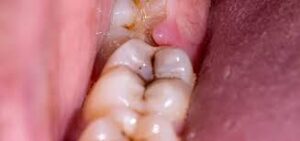
Wisdom teeth that grow at improper angles often create a gap between themselves and the neighboring second molars. This space becomes a hotspot for trapped food and bacteria, increasing the risk of serious oral conditions like tooth decay, gum inflammation, and even periodontitis.
In severe cases, an untreated infection in a wisdom tooth can spread to the surrounding tissues, causing facial swelling, persistent fever, and intense pain. One rare but serious complication is cellulitis, a potentially life-threatening bacterial infection that can spread across the jaw and facial areas if not addressed promptly.
3.2 Jaw Misalignment and Tooth Crowding
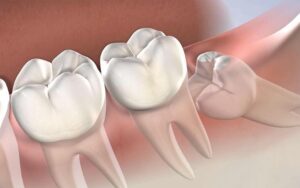
Wisdom teeth that push against neighboring teeth can cause alignment issues across your entire dental arch. This may result in a misaligned bite (malocclusion), which affects not only your smile’s aesthetics but also your chewing efficiency.
In some individuals, improper wisdom tooth eruption can even shift the lower jaw’s position, eventually affecting speech and jaw function. Correcting such structural issues may require orthodontic treatment or even jaw surgery in extreme cases.
3.3 Nerve Impairment and Sensory Disruption

Few people realize that improperly positioned lower wisdom teeth can come into close contact with critical nerves, such as the inferior alveolar nerve. If a wisdom tooth impinges on these nerves, it can lead to numbness or tingling in the lips, chin, or tongue.
Although rare, nerve damage due to wisdom teeth can become permanent if not treated early. In such cases, patients may experience long-term sensory disturbances that significantly impact daily life.
4. What to Keep in Mind Before and After Wisdom Tooth Extraction
4.1 Before the Procedure
-
Get an X-ray: A panoramic dental X-ray is essential to determine the exact location and orientation of your wisdom teeth.
-
Avoid stimulants: Refrain from consuming alcohol, tobacco, or caffeinated products for at least 24 hours before the procedure.
-
Eat lightly: Have a light meal and maintain good oral hygiene before your appointment to minimize infection risks.
4.2 After the Procedure
-
Control the bleeding: Bite down gently on a gauze pad for 30–60 minutes to help control post-operative bleeding.
-
Avoid disturbances: Do not rinse your mouth vigorously, drink through straws, or eat extremely hot or cold foods for the first 24 hours.
-
Eat soft foods: Stick to a soft diet—think porridge, yogurt, mashed potatoes, or smoothies—to avoid disturbing the extraction site.
-
Practice gentle oral hygiene: Brush your teeth with care and avoid direct contact with the surgical area.
If you notice any unusual symptoms such as severe pain, prolonged bleeding, swelling, or fever, contact your dentist immediately for proper evaluation and care.
Conclusion
Leaving problematic wisdom teeth untreated can have serious consequences for your oral health. From cavities and gum disease to jaw misalignment and even nerve damage, the potential risks far outweigh the inconvenience of a simple extraction procedure. If you’re experiencing discomfort or suspect your wisdom teeth might be growing in, don’t wait—visit a trusted dental clinic as soon as possible for assessment and timely treatment.
At Joy International Dental Clinic, our team of experienced professionals is ready to provide you with safe, comfortable, and effective wisdom tooth removal. If you have any questions or need a consultation, feel free to contact us via our hotline. Your smile—and your peace of mind—are our top priorities.

